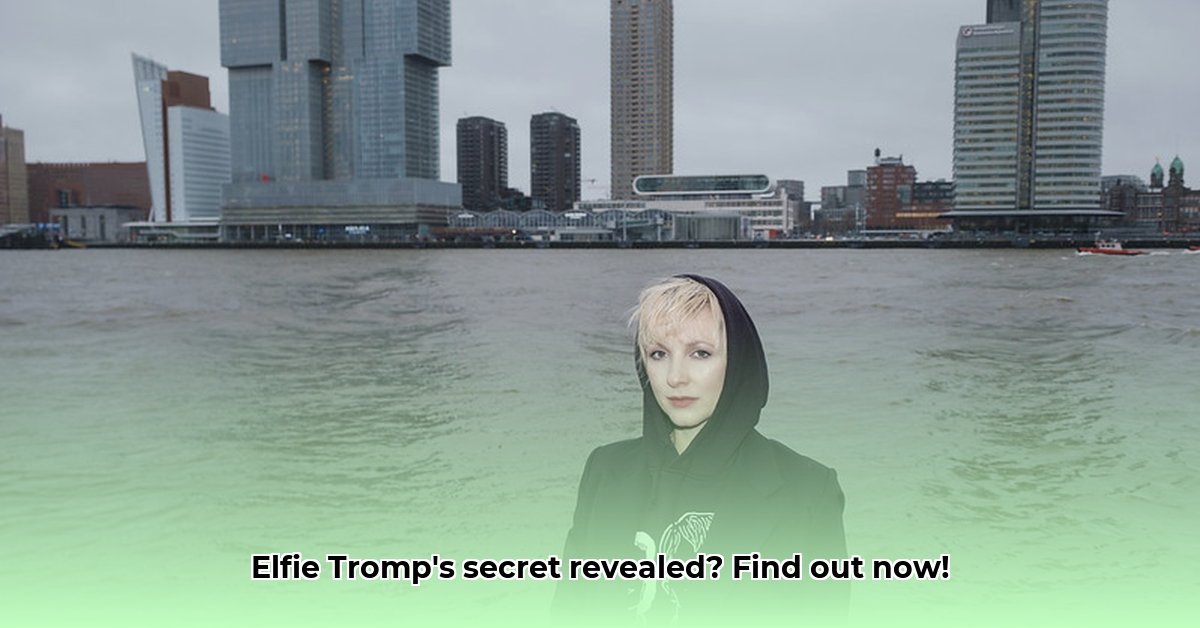
Elfie Tromp: A Relatie of Art, Activism, and Controversy
Elfie Tromp. The name itself evokes strong reactions, a whirlwind of praise and condemnation. This isn't just a profile; it's a deep dive into the complex "relatie" (relationship) between Elfie Tromp, her art, and the Dutch cultural landscape. We’ll examine her provocative stances, her stylistic evolution, and the interwoven threads of activism and artistry that define her career. From her early poetry to the seismic shockwaves of "Zonder pedofielen geen popmuziek" (Without pedophiles, no pop music), we'll trace a journey that illuminates the fraught relationship between art, public discourse, and personal experience. This exploration aims to understand not just Tromp's impact but also the broader societal context that shaped her and, in turn, was shaped by her.
Key Themes:
- The interplay between Tromp's personal experiences and her artistic output.
- The evolution of her style and the recurring themes in her work across various media.
- The impact of her controversial statements on Dutch public discourse.
Her journey, from Rotterdam City Poet to outspoken columnist to singer-songwriter, hasn't been without its challenges. The controversy surrounding her notorious column in De Nieuws BV, for example, sparked intense debate. Did this stem from artistic temperament or a deeper frustration with societal issues? One thing is clear: her work rarely avoids difficult questions.
From Poetry to Pop: A Stylistic Journey
Tromp's early poems, characterised by their raw honesty and emotional intensity, laid the groundwork for her later work. Her transition to prose and then to song reveals a consistent commitment to unflinching self-expression. This directness, while celebrated by some, has also been the source of significant backlash. How do we reconcile the vulnerability in her poetry with the provocative statements of her columns? It’s a question that demands close reading.
"Zonder pedofielen geen popmuziek," a song that directly confronts the issue of child sexual abuse within the music industry, is perhaps the most potent example of this. It's a stark, unapologetic statement that sparked fierce debate. But was it intended primarily as social commentary, a cathartic outpouring of personal experience, or a provocative artistic statement pushing boundaries? The answer, like Tromp’s work itself, is multifaceted.
Was this powerful song a calculated attempt to seize attention, a strategy for creating a larger impact on the debate? Or, was it a raw, emotional response born from personal experiences, regardless of the potential consequences? Did this song achieve the intended effect, initiating healthy conversations or simply fanning the flames of controversy? It remains an open question, and one that deserves further careful study.
The Price of Authenticity: Controversy and its Consequences
Tromp’s fearless approach has undoubtedly gained her admirers, but it has also led to considerable controversy. Her support for boycotts and her outspoken stances on various social issues have made her a polarizing figure. But what is the cost of such unwavering honesty? Does it limit her appeal, or does it, paradoxically, amplify her message and contribute to societal conversation?
The risks are inherent: backlash is a near certainty; misinterpretations are common; and legal challenges are a possibility. Yet, her continued commitment to her artistic vision hints at a deeper motivation: a fundamental need to express herself, regardless of the risk of reputational damage or personal consequences. This commitment to vulnerability and confrontation is what truly sets her apart.
A Lasting Legacy: Questions Remain
Elfie Tromp's legacy is still unfolding. It's a complex tapestry woven from controversy, artistic innovation, and deeply personal narratives. Her willingness to tackle sensitive topics head-on has undoubtedly sparked debate and, crucially, contributed to conversations on challenging social issues. But what is the ultimate impact? Will she be remembered as a catalyst for societal change, a provocative artist whose work transcended expectations, or something else entirely? Time will tell. The ongoing discussion about her work and its implications underscores her enduring influence on the Dutch cultural landscape, proving that her "relatie" with her audience remains as complex and engaging as ever.